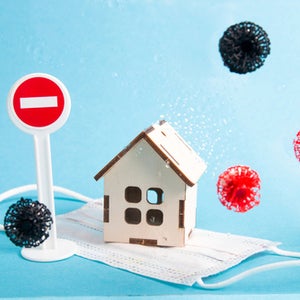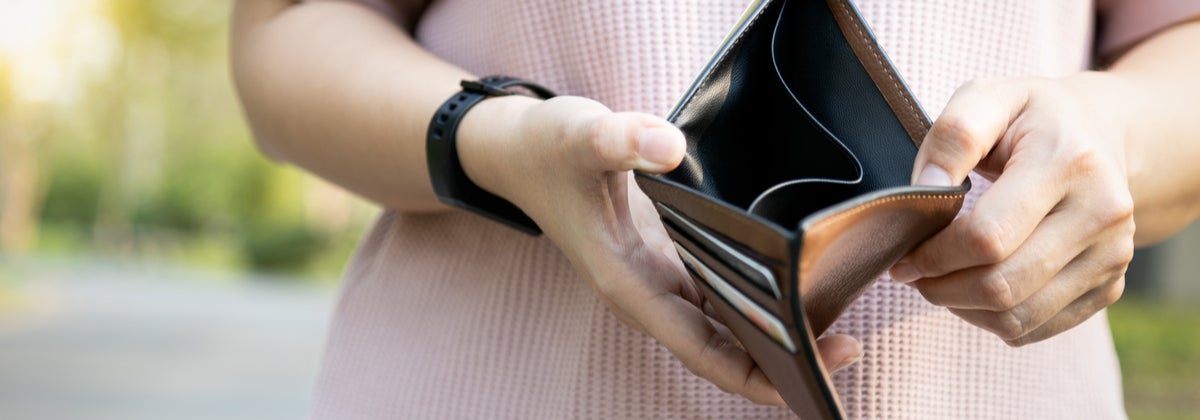There’s nothing like a dose of coronavirus to take the steam out of a rampant bull market. After a decade of gains, on March 11th, one nasty little bug ended a record 11-year run on the Dow Jones, during which $20tn was added to US equities.
Given the current shutdown and the economic chaos that COVID-19 is causing in Aotearoa, it’s safe to say that it will have the same effect on our bullish housing market.
A day after the end of Wall Street’s epic winning streak, on March 12, the Real Estate Institute of New Zealand (REINZ), published its house price stats for February. And REINZ’s figures were big:
- Median national house prices increased by 14.3% in February to a new record median price of $640,000, up from $560,000 in February 2019 – the largest percentage increase in 53 months.
- The number of properties sold in February increased by 9.2% from the same time last year, (from 6,132 to 6,694) making it the highest number of properties sold in February in four years.
What a difference a few weeks make. In the days leading up to our current lockdown, there was frenzied activity and buoyant prices as people rushed to secure sales. But since then, things have gone cold. REINZ now estimates that around 5,800 residential deals, worth $3.7bn, are on hold.
At the beginning of the year, during those heady BC (before-coronavirus) days, banks and experts were expecting house-price inflation to continue throughout the year, but now the ASB is forecasting house prices to drop over the next six months and house-price growth to slow to zero by this time next year.
So, cooling house prices could be on the cards. Usually this is a boon for first home buyers (FHBs), but what about now? Canstar weighs up the possible pros and cons of buying a first home given the dark clouds of the current pandemic looming over our economy. Let’s start with some positives:
COVID-19’s Positive Effects for First Home Buyers
Low interest rates
Even before the Reserve Bank of New Zealand cut the official cash rate to a record low of 0.25% for at least 12 months, there were some great mortgage deals out there. Since then, they’ve gotten even better as lenders have passed on those savings to new customers.
The ANZ and ASB are both offering a one-year special rate of 3.05%, while Westpac has a 3.09% deal. Heartland Bank goes even better, with the offer of 2.89% pegged for 12 months.
If you’ve got a 20% deposit, it’s never been a better time to tie down a great mortgage deal.
Less competitive market
While we won’t emerge from lockdown to face a ravaged post-apocalyptic landscape, for a while the housing market is likely to be subdued. Property analytics company CoreLogic predicts that market activity and sales volumes are likely to take a hit, as people shun open homes and auctions.
With travel restrictions likely to stay in place far longer than lockdown, curtailed immigration will also see a fall in the demand for housing. With fewer prospective buyers in the market, if you’re a FHB with your finance in place, less competition for houses could give you more time to shop around and, ultimately, lead to…
Lower prices
With fewer people competing for homes, and people more wary about job security and the wider economy, confidence in the housing market is likely to take a hit, which usually means lower prices.
While nobody is predicting Armageddon, many financial analysts are forecasting that house prices are likely to take a hit over the next 12 months.
BNZ Research’s latest market outlook predicts falling asset prices, while in the ASB report mentioned above, the bank adds: “It’s worth bearing in mind that the last four times NZ experienced or skirted economic recession, annual house price inflation in NZ went negative.”
Bounce back
The news from financial institutions is not all doom and gloom, which is exactly what you want to hear if you’re looking to buy a first home off the peak of a market high. You don’t want to buy a house and then see its price plummet, leaving you with negative equity.
The ASB cites cushioning effects that will mitigate the downturn, including strong underlying demand for housing and a strong labour market, while CoreLogic refers to the ongoing demand by investors. Both mention low interest rates as a reason why the housing market should remain buoyant, encouraging FHBs and investors into the market.

COVID-19’s Negative Effects for First Home Buyers
KiwiSaver loses
For a FHB looking to use their KiwiSaver account to fund their purchase, the recent steep stock market slumps are of most concern. Even if you have chosen the right KiwiSaver scheme to meet your goal of funding a first home and picked a more conservative fund, it’s likely that you’ve taken a financial hit as stocks have tumbled. If your KiwiSaver balance has slumped, it’s worth considering whether it’s still a good time to withdraw funds, as this will lock in your losses before any possible market rebound.
Lower interest rates
Low interest rates are great if you have a mortgage or want to borrow money, less so if you have savings. Early in the year, investors were already nudging out FHBs from the market, as they sought better returns from property than those offered by term deposits and volatile stock markets.
According to CoreLogic’s data in February, the combined market share for investors, both professional and mum-and-dad investors, topped 40% – the highest number for four years. As interest rates remain low, FHBs can expect to see this trend continue and to face more competition from investors for desirable homes.
Less job security
While NZ is in a good position to weather the economic storm, huge parts of our economy are vulnerable to the effects of COVID-19. In what it calls a “simple back-of-the-envelope” analysis the BNZ predicts that the slowdown in economic activity will hit about a third of workers, “think travel, tourism, hospitality, and retail”.
That’s a huge part of the workforce and it will take many months, perhaps years, before the full economic ramifications of the virus are felt. In the meantime, a great number of Kiwis, including potential FHBs, will be left worried about an uncertain economic future.
Look long-term
If you are a first home buyer, it’s reassuring to know that, traditionally, real estate has proven a solid investment. Over the past three decades, it’s survived three economic downturns, including the GFC, which saw a 10% drop in housing values, before they rebounded strongly.
Ultimately, pandemic or no pandemic, if you do your sums and treat the purchase of a first home as you should your KiwiSaver account, as a long-term investment, regardless of flu bugs, your first step on the property ladder should be a big step to a healthy financial future.
If you’d like more information on the latest low market rates, click on the button below.
Compare home loan rates for free with Canstar!
Sign up to receive more insights like this straight to your inbox.
By subscribing you agree to the Canstar Privacy Policy




Share this article